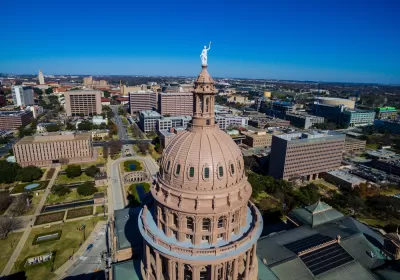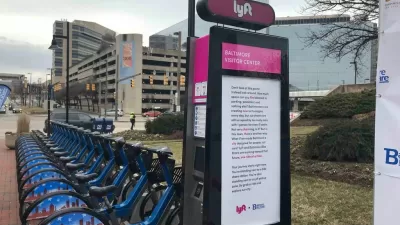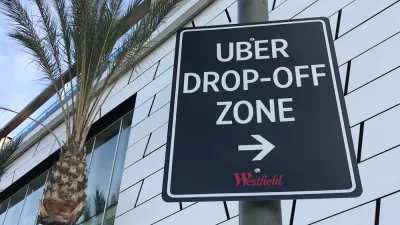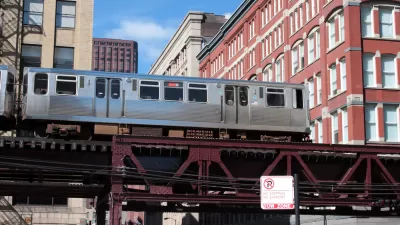A new Texas state law that regulates transportation network companies also overrides more restrictive local regulations, like Austin's requirement for fingerprinting drivers. Austin voters supported the tighter regulations at the ballot box last May.

On Memorial Day, Gov. Greg Abbott signed House Bill 100, which effectively ends the ban on ride-hailing enacted by the Austin City Council in December 2015 and supported by voters in May 2016.
Uber and Lyft put restrictions such as finger print requirements to a ballot test on May 7, 2016 with Proposition 1, but 56 percent of voters rejected the measure to overturn the regulations. The two companies suspended service in the city the following morning. [See Planetizen: "Op-Ed: Why Uber Wasn't Welcome in Austin."]
HB 100 "will override local provisions and provide regulatory certainty, creating a consistent framework across the state for popular ride-hailing companies, while still enforcing important customer safety standards," states the governor's office on the bill signing.
"It requires ride-hailing companies to have a permit from the Texas Department of Licensing and Regulation [TDLR] and pay an annual fee of $5,000 to operate throughout the state," reports Alex Samuels for The Texas Tribune. "It also calls for companies to perform local, state and national criminal background checks on drivers annually — but doesn't require drivers to be fingerprinted."
According to the department's FAQs on Transportation Network Companies (TNCs), they anticipate "publishing rules for the TNC program in the Texas Register on July 28, 2017, and adopting rules no later than September 29, 2017. Based on this timeline, we expect the TNC rules to take effect on November 1, 2017."
However, the ride-hailing companies need not wait for the publication of the rules. "Uber and Lyft said they resumed operations in Austin on Monday," adds Samuels. "Lyft also said it would relaunch in Houston on Wednesday (Uber is already operating in Houston.)"
FULL STORY: Uber, Lyft return to Austin as Texas Gov. Abbott signs ride-hailing measure into law

Alabama: Trump Terminates Settlements for Black Communities Harmed By Raw Sewage
Trump deemed the landmark civil rights agreement “illegal DEI and environmental justice policy.”

Study: Maui’s Plan to Convert Vacation Rentals to Long-Term Housing Could Cause Nearly $1 Billion Economic Loss
The plan would reduce visitor accommodation by 25% resulting in 1,900 jobs lost.

Why Should We Subsidize Public Transportation?
Many public transit agencies face financial stress due to rising costs, declining fare revenue, and declining subsidies. Transit advocates must provide a strong business case for increasing public transit funding.

Paris Bike Boom Leads to Steep Drop in Air Pollution
The French city’s air quality has improved dramatically in the past 20 years, coinciding with a growth in cycling.

Why Housing Costs More to Build in California Than in Texas
Hard costs like labor and materials combined with ‘soft’ costs such as permitting make building in the San Francisco Bay Area almost three times as costly as in Texas cities.

San Diego County Sees a Rise in Urban Coyotes
San Diego County experiences a rise in urban coyotes, as sightings become prevalent throughout its urban neighbourhoods and surrounding areas.
Urban Design for Planners 1: Software Tools
This six-course series explores essential urban design concepts using open source software and equips planners with the tools they need to participate fully in the urban design process.
Planning for Universal Design
Learn the tools for implementing Universal Design in planning regulations.
Smith Gee Studio
Alamo Area Metropolitan Planning Organization
City of Santa Clarita
Institute for Housing and Urban Development Studies (IHS)
City of Grandview
Harvard GSD Executive Education
Toledo-Lucas County Plan Commissions
Salt Lake City
NYU Wagner Graduate School of Public Service





























